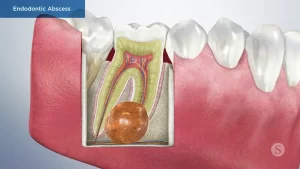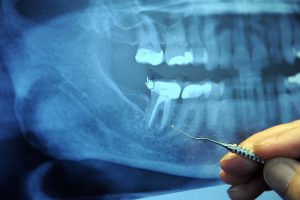How Long Can a Tooth Infection Go Untreated?
Introduction
Tooth infections, also known as dental abscesses, are painful conditions that occur when bacteria invade the innermost part of the tooth, called the pulp. If left untreated, these infections can have serious consequences on oral health and overall well-being. In this article, we will explore the potential dangers of ignoring a tooth infection, the signs and symptoms to watch out for, and the importance of seeking prompt dental care. Understanding the implications of an untreated tooth infection can help individuals make informed decisions about their oral health.
What Causes a Tooth Infection?
The Role of Tooth Decay
Tooth decay, commonly caused by poor dental hygiene and a high-sugar diet, is the leading cause of tooth infections. When plaque accumulates on the teeth, bacteria begin to break down sugars, producing acids that erode the protective enamel. As decay progresses, it eventually reaches the inner layers of the tooth, reaching the pulp chamber, where the nerve and blood vessels reside.
Cracks and Trauma
In addition to tooth decay, cracks or fractures in the teeth can also pave the way for infections. When a tooth is cracked, it creates an opening for bacteria to infiltrate and cause an infection. Dental trauma, such as a hard blow to the face, can also lead to tooth fractures and potential infections.
The Dangers of Ignoring a Tooth Infection
Localized Pain and Discomfort
Initially, a tooth infection may cause localized pain and discomfort around the affected tooth. As the infection progresses, the pain can intensify, making it difficult to chew or bite properly. The surrounding gums may also become swollen and tender to the touch.
Spread of Infection
If a tooth infection is left untreated, the bacteria can spread beyond the tooth’s root and into the surrounding tissues and bones. This can lead to a condition called a dental abscess, where a pocket of pus forms at the root of the tooth. The abscess can cause excruciating pain and may even lead to facial swelling and fever. Furthermore, if the infection continues to spread, it can affect neighboring teeth, increasing the risk of further dental problems.
Risk of Systemic Infections
In severe cases, untreated tooth infections can enter the bloodstream and spread to other parts of the body. This can lead to serious systemic infections, such as endocarditis (infection of the heart lining), pneumonia (lung infection), or brain abscesses. Such complications can be life-threatening and require immediate medical attention.

Signs and Symptoms of a Tooth Infection
1. Persistent Toothache
A persistent, throbbing toothache is one of the most common signs of a tooth infection. The pain may come and go, but if it lingers for more than a day or two, it’s essential to seek dental care.
2. Sensitivity to Temperature
Individuals with a tooth infection may experience heightened sensitivity to hot and cold foods or beverages. The discomfort can be sharp and shooting.
3. Swollen Gums
Gums around the infected tooth may appear red, swollen, and tender. In some cases, a pimple-like bump filled with pus (dental abscess) may be visible on the gum.
4. Bad Breath and Foul Taste
As the infection progresses, bacteria can release foul-smelling gases and substances, causing bad breath and an unpleasant taste in the mouth.
5. Fever and Malaise
If the infection becomes severe and spreads, it may lead to systemic symptoms like fever, fatigue, and general malaise.
The Importance of Timely Dental Care
Seeking prompt dental care is crucial when dealing with a tooth infection. A dentist can properly diagnose the issue, perform necessary treatments, and prevent the infection from worsening. The typical course of action for a tooth infection includes:
1. Drainage of the Abscess
If an abscess has formed, the dentist may drain the pus to alleviate pain and promote healing.
2. Root Canal Therapy
For infections that have reached the tooth’s pulp, a root canal procedure may be necessary. This involves removing the infected pulp, cleaning the root canals, and sealing the space to prevent further infection.
3. Antibiotics
In some cases, the dentist may prescribe antibiotics to combat the infection and prevent its spread.
4. Tooth Extraction
If the tooth is severely damaged and cannot be saved, the dentist may recommend extracting it to prevent the infection from spreading to other teeth.

Conclusion
Ignoring a tooth infection can lead to severe consequences, including localized pain, the spread of infection, and potential systemic complications. Being aware of the signs and symptoms of a tooth infection is crucial for seeking timely dental care and preventing further oral and overall health issues. If you suspect you have a tooth infection, don’t hesitate to consult a dentist for appropriate diagnosis and treatment. Remember, proactive dental care is essential for maintaining a healthy and pain-free smile. For dentistry in ashfield see here.





